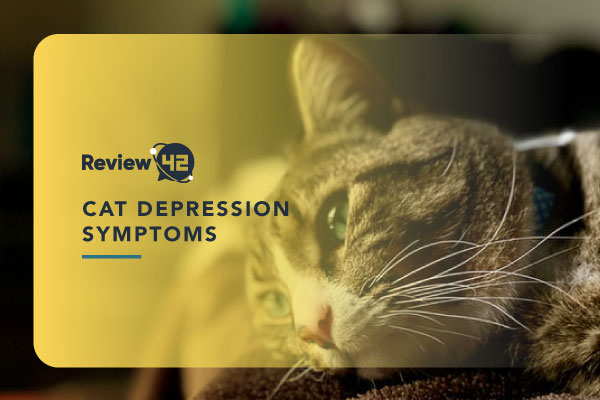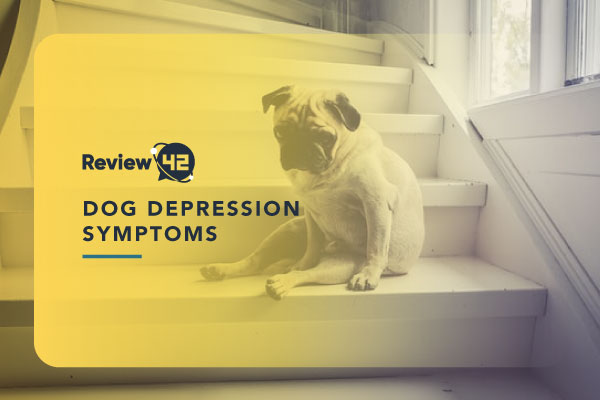What Essential Oils Are Safe for Cats? [And Which to Avoid]
 Fact-checked
Fact-checked
Last Updated: February 2, 2023
Are you a cat owner who likes using essential oils in your home? If so, are you aware of what essential oils are safe for cats? Although essential oils with beautiful fragrance have a calming effect on humans, cats are very sensitive creatures, and some essential oils can be harmful to them.
In this article, we’ll discuss which essential oils are safe for cats and which are toxic, and what cat parents can do to keep their pets safe.
What Essential Oils Are Safe For Cats?
We know essential oils can be very beneficial for humans, but are essential oils safe for cats? Overall, they’re not safe for your kitty, as the majority of essential oils such as tea tree and ylang-ylang are poisonous for cats. You should never leave essential oils out in the open, and never apply them directly to your cat’s body.
Essential oils that are put in spray and diffusers can also pose a risk. Even though they emit small amounts of oil, these oils can end up on your cat’s body and fur and are easily absorbed through the skin, and very likely to damage your cat’s liver. Unlike humans, cats are unable to metabolize these oils, as their liver functions differently and can’t get rid of the harmful substances.
Essential oils can be dangerous for cats, as they have a negative effect on your cat’s central nervous system. Even if just a drop or two find their way to your cat’s fur, due to their self-grooming habits, the cat will lick and ingest the oil.
While the safest thing a pet owner can do is completely avoid essential oils, there are still some options that can be safe when used appropriately.
Pet safe essential oils which you can use include:
- Chamomile oil
- Lavender oil
- Eucalyptus oil
- Lemongrass oil
- Rose oil
When using essential oils, it’s important to keep in mind that their degree of toxicity depends on the dose, and heavier concentration increases the potential risks of essential oils. Even the safe essential oils for your cat must be appropriately diluted before use—usually, 1 drop of essential oil is used with 50 drops of pure carrier pet-friendly oil like virgin or coconut oil.
When used appropriately, lavender oil is considered one of the safest oils for cats, while citrus oils such as lemongrass oil are said to repel pests and keep mosquitoes at bay. However, before using any essential oils, always consult a vet about the dilution process and reconfirm the dosages of oils on the safe list.
DID YOU KNOW: Cats with health problems and cats suffering from depression or recovering from surgery can largely benefit from the use of a quality CBD oil.
Which Essential Oils Are Not Safe for Cats?
Essential oils bad for cats are harmless to humans, which is why it’s easy for us not to notice the negative influence they can have on our cats. However, when ingested, essential oils can cause liver damage and failure to your cat, while inhaling essential oils can lead to respiratory problems as well.
These are the essential oils considered toxic for cats that should be avoided:
- Cinnamon
- Citrus
- Clove
- Eucalyptus
- Peppermint
- Pine
- Sweet Birch
- Tea Tree
- Thyme
- Wintergreen
- Ylang Ylang
Cats lack the enzymes that help the liver eliminate phenols that essential oils contain, and their grooming habits make them very likely to ingest this compound. These essential oils can be especially harmful for cats with liver disorders. Pet parents should be especially careful not to expose pregnant cats and cats with health problems such as asthma or bronchitis to these oils, as they can have life-threatening effects and, depending on the cat’s level of toxic ingestion, may even result in death.
Oils found on the toxic list are known to cause gastrointestinal issues and neurological issues in healthy cats as well, and it’s best to avoid them.
Key Takeaways
- The majority of essential oils aren’t safe for cats.
- Lavender oil, lemongrass oil, and rose oil are on the essential oil cat-safe list.
- Respiratory issues and eye and nose irritations are common symptoms of essential oil poisoning.
- Pet owners should create an environment where cats and essential oils can coexist.
How to Know if Your Cat Has Been Exposed to Essential Oils Toxic for Cats?
Both passive and active diffusers put cats at risk of essential oil poisoning. To be on the safe side, owners are always advised to be cautious and avoid having toxic essential oils for cats in their homes. If your cat is displaying any of the following symptoms, it could mean they’ve been exposed to essential oil droplets from your home diffuser.
-
Difficulty Breathing
When inhaling strong fragrance, your cat might experience labored or fast breathing, which can advance into panting and coughing. Cats with pre-existing respiratory issues are likely to experience more severe respiratory irritations.
-
Muscle Tremors
Due to the effect essential oils have on their nervous system, muscle weakness and lethargy are the most common symptoms cats display. More severe symptoms include bradycardia and hypotension, limb paralysis, and even seizures and collapses.
-
Uncoordinated Walking
If your cat has been exposed to toxic essential oils for cats, they may wobble and seem disoriented, and experience other problems caused by the central nervous system.
-
Drooling
When exposed to essential oils via diffusers, the burning sensation in the cat’s nose results in drooling, and sometimes even vomiting, depending on the type of oil and the cat’s level of toxic ingestion.
-
Irritation of the Eyes, Ears, and Skin
Cats can experience a burning sensation accompanied by watery eyes and a runny nose. Some cats might also squint their eyes or hold them shut.
How to Keep Your Cat Safe Around Essential Oils?
While essential oils bring many positive benefits to humans due to their therapeutic effects, different scents, and the fact they reduce stress and anxiety, most essential oils are not safe for cats to be around. Luckily, you can get the best of both worlds—here are some tips on how to create a safer environment where your cat and essential oils can coexist.
-
Keep Them Away From Your Pet
The best way to keep your cat safe is to avoid using essential oils around them. Make a habit of washing your hands after applying essential oils, and make sure your cat doesn’t lick the oil off your skin or clothes.
Moreover, never leave your essential oils unattended, and keep essential oil bottles out of your cat’s reach and safely locked away in a cabinet.
-
Use Diffusers Pet-Safe
If you’re one of those pet owners that enjoy fragrances, keep in mind that even essential oils that are safe for cats and dogs can cause your cat irritation or discomfort. If you must use diffusers, use them wisely. You can ensure greater safety for your cat by limiting your diffuser use to a shorter time period, and by keeping your cat in mind when looking for a new aromatherapy diffuser for your room.
You can also keep your cat out of the room and air out the room before inviting them in.
-
Do Not Use Highly Concentrated Oils
No essential oils are 100% safe for your cat, and diluting is not always as simple as it sounds. To avoid toxicity, don’t apply essential oils directly to your cat’s body and fur.
-
Avoid Cleaning With Essential Oils
Although it can help avoid toxic chemicals in your home, cleaning with essential oils is dangerous for cats. Owners of cats with health problems should be cautious, as cats rub against everything in the house, and the essential oil can get transferred onto your kitty’s fur.
DID YOU KNOW: Despite lavender having amazing properties, it takes around 250 pounds of lavender flower to make a single bottle of lavender essential oil.
When to Seek Vet Help
There’s no cure for essential oil poisoning, which is why early intervention is important. As some essential oils are more toxic than others, your cat’s chances of recovery and overall recovery time depend on the type and amount of essential oil ingested.
-
When Cats Ingest Some of the Oils
If you suspect your cat has ingested some essential oil, especially one from the list of essential oils bad for cats, the first thing to do is contact the Pet Poison Helpline (800-213-6680) or your vet. As trips to the vet’s office can often be expensive, it may be smart to invest in pet insurance and be prepared for cases like this.
You should avoid acting on your own and giving your cat medicine such as activated charcoal, as this might complicate their condition. All you need to do is take the essential oil product with you and head to the vet station.
-
Essential Oil Drops on Fur
If one of the essential oils toxic for cats gets on your cat’s fur, you should wash it off using soap and water. Cats are known for their grooming habits, and it’s very likely your cat will lick their fur and ingest the essential oil. The most important thing to do when you’re worried your cat has come in contact with any type of essential oil is to act immediately.
Wrap Up
Essential oils can be safe for cats when used properly, but they must be used with caution. Although diluting is a good practice, it’s best to keep your cat away from essential oils, as ingesting essential oils—especially toxic ones—can lead to some serious consequences. It’s important for pet owners to be aware of which essential oils can be harmful and which are safe to use around their cats before introducing any into their homes.
FAQ
Lavender essential oil belongs to the group of essential oils good for cats. Using diffusers with lavender oil is not likely to cause problems for your cat, as the oil is diluted.
Some of the oils safe for both cats and dogs include rose oil, lavender oil, chamomile oil, and lemongrass oil. The list of essential oils safe for dogs is a bit longer, and also includes peppermint oil, fennel oil, and eucalyptus oil.
When diffusing, it’s important to know what essential oils are safe for cats. Diffusing harmful oils around your cat isn’t recommended, as the essential oil drops can land on your cat’s fur and skin, or your cat can inhale some of the oil in the air, which can lead to a number of symptoms in your cat, depending on type and amount of essential oil they came in contact with.
![How to Stop Cats from Scratching Furniture [6 Tricks to Try]](https://review42.com/wp-content/uploads/2022/10/How-to-stop-cats-from-scratching-furniture.png)
![How to Wash Dog Toys? [Steps to Washing Different Toy Types]](https://review42.com/wp-content/uploads/2022/09/How-to-wash-dog-toys.png)
![Can You Give a Dog Melatonin? [Indications, Dosage, Side Effects]](https://review42.com/wp-content/uploads/2022/08/Can-you-give-a-dog-melatonin.png)

![Why Do Cats Sleep So Much? [7 Most Common Reasons]](https://review42.com/wp-content/uploads/2022/06/feature-image-55-why-do-cats-sleep-so-much.jpg)




